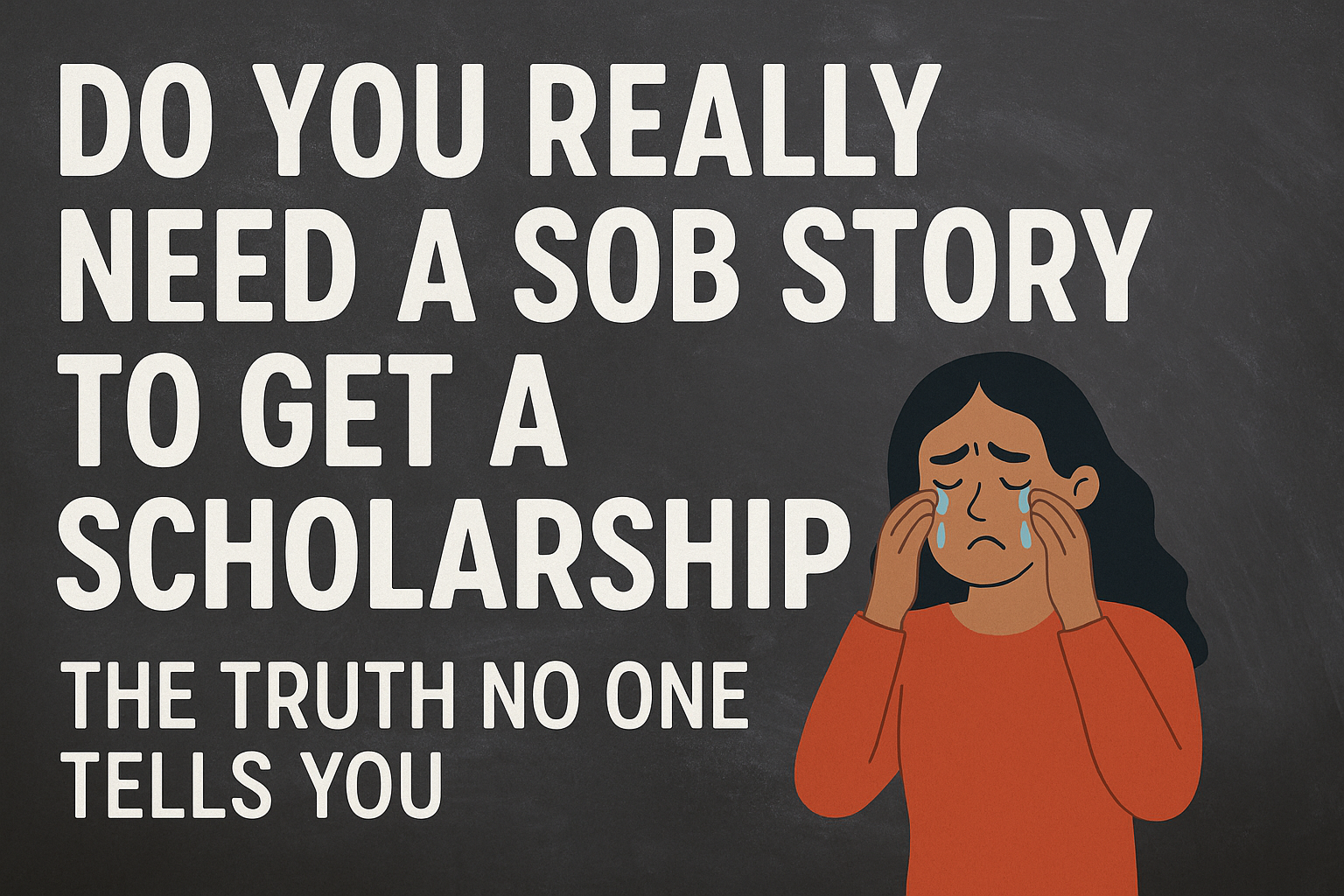“Tell us about a hardship you’ve overcome.”
If you’ve ever applied for a university scholarship, you’ve likely stared at this sentence, unsure whether to write like a survivor or stay silent like a protector of your past. There’s an unspoken rule: if you want to be seen, you better bleed on paper.
Somewhere along the way, it became normal to expect pain in return for opportunity. Being talented isn’t enough anymore—you must have suffered, preferably in a way that can be made digestible. The “ideal candidate” is no longer just bright or hardworking—they’re resilient, with a backstory that tugs at just the right heartstrings.
I fell into this trap too. I thought I could write a little about where I came from—just enough to help them understand. But that’s not how it works. Share one part of your truth and suddenly you’re being asked for more. Like irrigation water meant for one seed, the story spreads uncontrollably. I wanted to share, not spill. But in these essays, once you start pouring, it’s hard to stop.
So I didn’t stop. I shaped my memories into paragraphs. Forced meaning onto moments that had none. Told myself I was stronger because of what happened. That’s what they want to hear, right? That your trauma built your character. That every scar made you smarter, braver, kinder.
But here’s the truth: not all pain makes you better. Some just lingers.
When I wrote my scholarship applications, I wasn’t sharing stories—I was editing wounds. I was cleaning up chaos and repackaging it for approval. And I hated it. I was not writing about healing. I was bargaining.
What makes this worse is the emotional checklist behind the scenes. Your story needs to be sad—but not too sad. You need to be vulnerable—but not messy. Brave—but not bitter. If your trauma makes them uncomfortable, it’s too real. If it’s too different from what they recognize, it won’t count.
I’ve read profiles of scholarship winners who rebuilt bicycles with their dads, or funded their ballet lessons through part-time jobs. That’s valid. That’s effort. But what about those of us who worked so we could eat? Who didn’t dream of hobbies because survival came first?
My family’s story isn’t neat. My parents didn’t attend weekend workshops. They escaped wars. My grandmother didn’t write unpublished books. She was never taught to read. But those stories? They don’t market well.
And that’s the problem. The system isn’t flawed because it rewards effort. It’s flawed because it only rewards the kind of struggle it understands. You can’t say you care about adversity and then put it through a filter. You can’t ask us to reduce our lives into bullet points:
- Survived a war
- Raised by a single parent
- Learned English at 14
This isn’t a shopping list. It’s our life.
And in this whole process, no one warns you how damaging it can be. Writing about trauma when you haven’t healed. Rewriting it to make it sound hopeful. Editing the parts that hurt too much. Then being told it’s not enough.
The silence after rejection doesn’t just feel like a lost opportunity. It feels like your truth wasn’t worth reading.
So should you write a sob story to get a scholarship? No. But you might still have to.
And if you do, write it on your terms. If you share your scars, do it because you choose to—not because you feel you must.
Because your story—raw, whole, and unedited—has value, even when no one claps for it.



